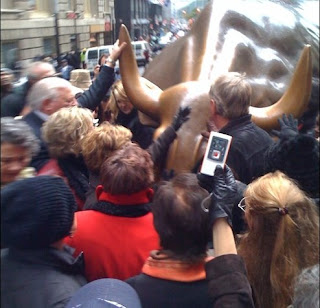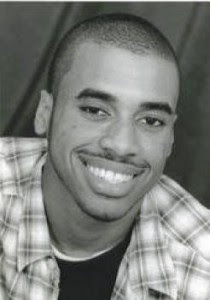I’ve been trying to speak with people lately about genius and gender. Not surprisingly, no-one is taking the bait! This is why one starts a blog – because the issue of whether women can be imagined or understood as “geniuses” is a tricky one. I can’t quite figure it out.
Not long ago, I read a blog post about “misunderstood geniuses” in film. (This blog post has disappeared into the ether, apparently; it is not Googlable. COME BACK!) The writer pointed out that in most stories about “misunderstood geniuses” – and you know these stories, all of them, all about the struggles and eventual triumphs of people whose dazzling intellects make them misfits – the MG in question tends to be a dude.
This is a tricky statement, since many films about MGs tend to be about people who actually existed, and were, in fact, dudes: off the top of my head, I can name Amadeus, Shine, and A Beautiful Mind (misunderstood geniuses tend to be batshit nuts, apparently). As for women… I don’t know, The Hours, maybe?
Yet this also points to a certain ugly facet of the narrative: when we think of “genius,” we’re far more likely to apply the word (and the narrative that comes with it) to men. When I type the word “genius” into Google, I get
this list, which features Einstein, Dylan, Chapman, Chomsky, Da Vinci, Darwin, Mozart, Lennon, Bach, Beethoven, and so on down the list until you get to Ayn Rand, the only woman, at #109. One doubts the smarts of the people who made the list – “Dexter,” a TV character, is included, and Thom Yorke’s name is misspelled – but it is instructive, in that it was assembled by voting and must reflect the biases of more than one person. Harold Bloom’s
Genius list looks similar: Shakespeare, de Cervantes, de Montaigne, Milton, Tolstoy, Lucretius, Virgil, St. Augustine, Dante, and on and on and on and, you know, maybe it would just be easier to tell you which women are included. They range from the obvious (Austen, Dickinson, Eliot, Woolf, two out of three Brontes) to who-says-old-codgers-can’t-do-multiculturalism picks (Murasaki) to relatively minor talents whose presence seems puzzling (O’Connor, Wharton, Cather, Murdoch) to sheer bloody pandering (Christina Rossetti!?). There are 101 names, by my count; twelve of them belong to women.
You would like to think that the game changed in the twentieth century, and that as more women gained access to education and became intellectuals or artists we would begin to understand women’s work as more central to contemporary arts and to intellectual life. That is not, unfortunately, true: we reference Derrida and not Cixous, Lacan and not Kristeva, and the kids are still talking about Yorke, Malkmus, Lethem, DFW, Kaufman. And no one – no one – talks about Artemisia Gentileschi.
— HERE WE PAUSE TO TALK ABOUT ARTEMISIA GENTILESCHI —
You probably know the bare bones of Gentileschi’s life story: lived in ye olden times, had to struggle to become a painter because she had lady parts, got raped, pressed one of the first rape cases anywhere, was tortured during the case by having her goddamn fingers broken to prove she wasn’t lying, kept on painting, etc. What no-one seems to talk about, or value, is the fucking incredible relationship her paintings had to standard painterly conventions and to narratives about women. Here, for instance, is Tintoretto’s “Susannah and the Elders.”

Here is Gentileschi’s.

Here is Caravaggio’s “Judith Slaying Holofernes.”

Here is Gentileschi’s.

Gentileschi’s art existed in response to a tradition which did. not. get. female experience: a tradition in which Susannah was a peep show and not a woman experiencing sexual assault, and in which Judith was a meek girl cowering at her task (what, is she shaving him?) and not a determined assassin willing to use violence to defend herself and her people. Gentileschi was to her tradition as “Exile in Guyville” is to “Exile on Main Street.” Gentileschi was vastly ahead of her time in understanding how one could pose a critique of an image by responding to it with another image, which reinterpreted its key components or centralized a marginal presence within it. Gentileschi was able to look at the big guns, the great painters, the men that she was supposed to be learning from, and say, no, you got that wrong; I will show you how to do it. Gentileschi was a genius.
— HERE WE END OUR PAUSE —
It probably shouldn’t be surprising that we think of men as geniuses more often than we think of women that way: they’ve always had access to higher education, and they’ve always been encouraged to “make an impression” and to believe that their voices and opinions are worth hearing. Genius requires ambition, and ambition requires a certain amount of ego: you have to believe that you deserve to be at the top of your field before you can take the chances that might get you there. Bravado and confidence have always been nurtured in boys; girls are encouraged to be smart, but not scary smart, because one-upsmanship or assertiveness or even the ability to do something better than someone else might make people (boys, mostly) feel dumb and therefore less likely to invite one to the Spring Fling.
Then, too, there is the fact that genius is associated with a certain technical innovation. In my experience, most of the men I know engage with art on a technical or structural level; most of the women I know seek to understand it on a human level, as something which exists in the context of lived experience and has the potential to shed light on it. One approach asks, how does X speak to its tradition – is it smart, is it innovative, does it show fine craftsmanship? The other approach asks, how does X speak to me – is it true, does it resonate, does it open up new avenues of understanding? I’m sure that there are plenty of exceptions to this rule; I can enjoy good technique, and I know plenty of men who have been moved by art. Still, I think that it says something about the qualities that men and women are socialized to value, and what they might therefore try to achieve in their own work.
I don’t think either line of questioning is superior to the other; I think we need both. Technical skill should be matched by humanity and depth; leave out either one, and you end up with either a sentimental mess or a science experiment. DFW had the balance; so did Proust, and Shakespeare. Still, if given the choice, people tend to choose the science experiments – and, unsurprisingly, it’s boys who are running the labs. This might explain why so many geniuses are sort of boring, and why so many men who try to be geniuses are worse, and why, when reading (for example) Mark Leyner, or Dave Eggers, or all the guys in my Creative Writing classes who wrote nonsense poems which they said were intended to demonstrate the essential emptiness of language because they’d read “Differance” and been like WHOA, I so often got the urge to scream, dude, put down your toys and tell me something.
I will tell you something: girls don’t have to be geniuses to be misunderstood. We’re too smart from the moment we open our mouths. We’re told to let men win arguments, make people comfortable (which means not telling them when they’re wrong), consider our professional or artistic achievements secondary to our human achievements, be warm not cold, feel don’t think, and speak only in ways that are conducive to reflecting the fantasies and needs and worldviews of the people around us. The narrative of the misunderstood genius speaks to a deeply felt need; everyone, at times, feels that they are smarter than the people around them, and that their intelligence has been suppressed, and that they deserve a chance to be recognized for their talents. I would say that girls feel that way far more often than boys do. We need those stories, no matter how smart we are (or aren’t), to reflect that internal narrative back to us and give it some grace.
It’s just that, when we go to the movies for our stories, we’re always played by dudes.








